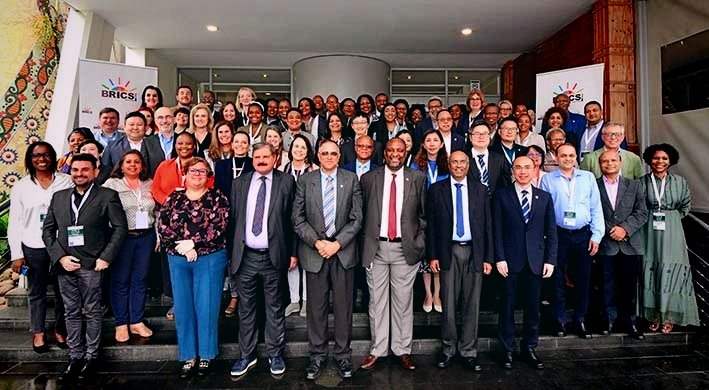Although South Africa’s Tuberculosis (TB) infection incidence is dropping, government is concerned about the death rate among patients.


This is according to the Deputy Health Minister, Dr Sibongiseni Dhlomo, who recently delivered a keynote address on the opening day of the BRICS TB Research Network Innovation Summit in Durban.
“TB remains a pressing concern for South Africa, as it does for all BRICS countries and many nations,” he said.
He told the summit attendees that about 300 000 people are estimated to get TB every year in South Africa.
“Last year alone, we managed to notify and put 224 000 people on a TB treatment regime. Although our infection incidence is declining, we are concerned about the unacceptable death rate among our TB patients,” he said.
According to Minister Dhlomo, a major driver of TB infection is HIV – accounting for 48% of TB patients who were living with HIV in 2022. However, he said the country’s antiretroviral programme has led to a decrease in TB incidence.
The BRICS nations – Brazil, Russia, India, China and South Africa - carry a disproportionate burden of drug-susceptible and drug-resistant TB infection and neglected diseases of the South.
To address this public health threat, the BRICS TB Research Network was established in 2017 to bring together programme managers and scientists to exchange information and formulate redress strategies and solutions.
“The ultimate goal of this endeavour was to establish collaborative research programmes aimed at developing new diagnostics, drugs, and vaccines for TB. The TB control programmes from the various representative countries also undertook to learn from each other on key aspects of financing and strengthening the health systems in their respective nations,” he said.
Following the devastating impact of COVID-19 on public health programmes, South Africa developed a TB Recovery Plan to find missing people with TB linking them to care and creating a demand for testing.
“TB prevention and improvement of data systems are also prioritised. Given our high HIV-TB comorbidity let me give our delegates some data on HIV in South Africa.”
He cited the sixth South African National HIV Prevalence, Incidence, and Behaviour among people aged 15 years and older living with HIV in South Africa in 2022.
According to the data, 90% were aware of their status, 91% of those aware of their status were on antiretroviral treatment, and 94% of those on antiretroviral treatment were virally suppressed.
“South Africa has made significant progress toward the UNAIDS 95-95-95 targets that by 2025, 95% of all people living with HIV to be aware of their HIV status, 95% of those aware of their status to be on antiretroviral treatment, and 95% of those on antiretroviral treatment who also know that that they are living with HIV to achieve viral load suppression.”
In addition, he stated that the country has been at the forefront of introducing and scaling up new tools for diagnosis and shorter treatment regimens for drug-resistant TB.
“However, there is a need to do more to improve linkage to care and retention in care.”
He also believes that BRICS countries have made significant strides since the establishment of this network, with progress and some challenges.
Dhlomo touched on the United Nations General Assembly High-Level Meeting on TB, in New York, in September this year.
“We should, therefore, work very hard to ensure that we meet the targets we have set ourselves for this summit.”
The targets, he said, include the creation of innovations in therapeutics, diagnostics, and vaccines that the network can prioritise for collaboration, investment and development.
“A world without TB is not just an aspiration but an attainable reality, and we should stand ready to play our part in making that vision a shared triumph. I certainly believe that this network can make a significant contribution to this end.
“Let us recommit to the implementation of the Political Declaration on TB as we map out of future endeavour of ending TB in BRICS countries. The goal to end TB is within our grasp. Our collective efforts must transcend borders, ideologies, and individual interests.”
Dhlomo also took the time to congratulate Russia as it takes the baton of leadership of BRICS in 2024. – SAnews.gov.za

 Facebook
Facebook Twitter
Twitter WhatsApp
WhatsApp